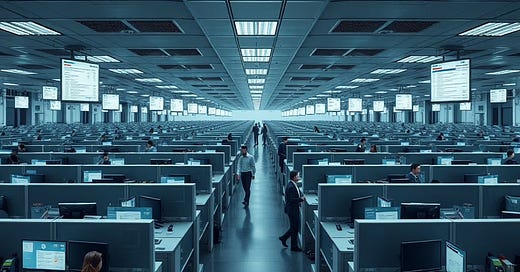Playback speed
×
Share post
Share post at current time
Share from 0:00
0:00
/
0:00
Paid episode
The full episode is only available to paid subscribers of The Mavericks Manifest
The Quiet Fracture of Labor
An observation of the divide between conformity and creative expression in the modern workplace.
Feb 12, 2025
∙ Paid
The Mavericks Manifest
The Mavericks Manifest podcast unveils the occult knowledge and alchemic insights neglected in mainstream narratives. For gifted minds that question everything, we journey into the inner world of the maverick, challenging accepted beliefs and embracing the silent revolution. Confront your illusions, explore the path of involution, and embrace truths few dare to uncover.
The Mavericks Manifest podcast unveils the occult knowledge and alchemic insights neglected in mainstream narratives. For gifted minds that question everything, we journey into the inner world of the maverick, challenging accepted beliefs and embracing the silent revolution. Confront your illusions, explore the path of involution, and embrace truths few dare to uncover.Listen on
Substack App
Apple Podcasts
Spotify
Overcast
Pocket Casts
RSS Feed
Recent Episodes













